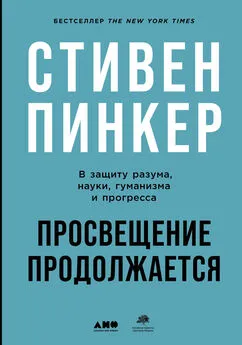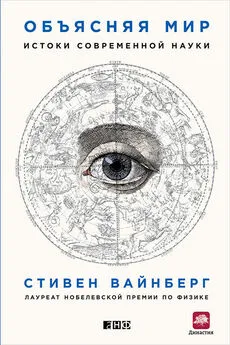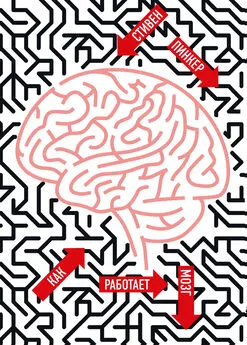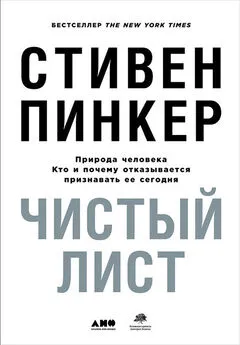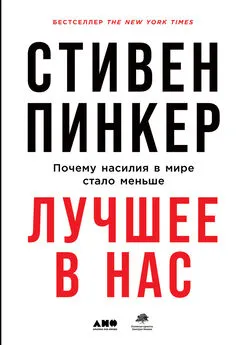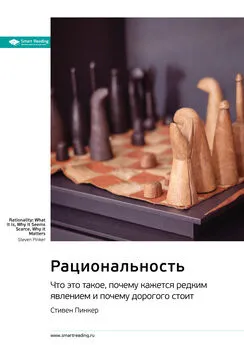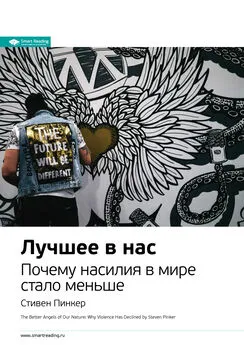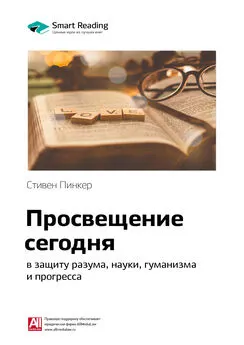Стивен Пинкер - Просвещение продолжается. В защиту разума, науки, гуманизма и прогресса
- Название:Просвещение продолжается. В защиту разума, науки, гуманизма и прогресса
- Автор:
- Жанр:
- Издательство:Альпина нон-фикшн
- Год:2021
- Город:Москва
- ISBN:9785001395362
- Рейтинг:
- Избранное:Добавить в избранное
-
Отзывы:
-
Ваша оценка:
Стивен Пинкер - Просвещение продолжается. В защиту разума, науки, гуманизма и прогресса краткое содержание
Этот прогресс – не случайность и не результат действия внешних сил. Это дар современному миру от деятелей Просвещения, которые первыми додумались, что знания можно использовать во имя процветания всего человечества. Идеи Просвещения – вовсе не наивные мечтания. Наоборот, они сработали – и это неоспоримый факт. Тем не менее именно сейчас эти идеи особенно нуждаются в нашей защите, поскольку противостоят характерным недостаткам человеческой природы – трайбализму, авторитаризму, демонизации чужаков и магическому мышлению, – которые так нравится эксплуатировать современным демагогам. Да, стоящие перед человечеством проблемы огромны, но все они решаемы, если мы, продолжая дело Просвещения, используем для этого разум, доверяем науке и руководствуемся идеалами гуманизма.
Особенности
Более 70 графиков из почти всех областей человеческой жизни.
Для кого
Для поклонников Стивена Пинкера. Для всех, кто интересуется природой человека. Для тех, кто верит в прогресс, и для тех, кто в нем сомневается.
Просвещение продолжается. В защиту разума, науки, гуманизма и прогресса - читать онлайн бесплатно ознакомительный отрывок
Интервал:
Закладка:
Наконец, эта история – не достояние какой-то отдельной группы. Она принадлежит всему человечеству – каждому мыслящему созданию, наделенному разумом и стремлением продлить свое существование. Ведь все, что для нее нужно, – это убеждение, что жизнь лучше смерти, здоровье лучше болезни, изобилие лучше нужды, свобода лучше принуждения, счастье лучше страдания, а знание – лучше, чем предрассудки и невежество.
Библиография
Abrahms, M. 2006. Why terrorism does not work. International Security, 31, 42–78.
Abrahms, M. 2012. The political effectiveness of terrorism revisited. Comparative Political Studies, 45, 366–93.
Abrams, S. 2016. Professors moved left since 1990s, rest of country did not. Heterodox Academy . http://heterodoxacademy.org/2016/01/09/professors-moved-left-but-country-did-not/.
Abt, T., & Winship, C. 2016. What works in reducing community violence: A meta eview and field study for the Northern Triangle . Washington: US Agency for International Development.
Acemoglu, D., & Robinson, J. A. 2012. Why nations fail: The origins of power, prosperity, and poverty . New York: Crown.
Achens, C. H., & Bartels, L. M. 2016. Democracy for realists: Why elections do not produce responsive governments . Princeton, NJ: Princeton University Press.
Adriaans, P. 2013. Information. In E. N. Zalta, ed., Stanford Encyclopedia of Philosophy . http://plato.stanford.edu/archives/fall2013/entries/information/.
Ægisdóttir, S., White, M. J., Spengler, P. S., Maugherman, A. S., Anderson, L. A., et al. 2006. The Meta Analysis of Clinical Judgment Project: Fifty ix years of accumulated research on clinical versus statistical prediction. The Counseling Psychologist, 34, 341–82.
Aguiar, M., & Hurst, E. 2007. Measuring trends in leisure: The allocation of time over five decades. Quarterly Journal of Economics, 122, 969–1006.
Ajdacic-Gross, V., Bopp, M., Gostynski, M., Lauber, C., Gutzwiller, F., & Rössler, W. 2006. Age – period – cohort analysis of Swiss suicide data, 1881–2000. European Archives of Psychiatry and Clinical Neuroscience, 256, 207–14.
Al-Khalili, J. 2010. Pathfinders: The golden age of Arabic science . New York: Penguin.
Alesina, A., Glaeser, E. L., & Sacerdote, B. 2001. Why doesn’t the United States have a European-style welfare state? Brookings Papers on Economic Activity, 2, 187–277.
Alexander, A. C., & Welzel, C. 2011. Islam and patriarchy: How robust is Muslim support for patriarchal values? International Review of Sociology, 21, 249–75.
Alexander, S. 2016. You are still crying wolf. Slate Star Codex, Nov. 18. http://slatestarcodex.com/2016/11/16/youarestillcryingwolf/.
Alferov, Z. I., Altman, S., & 108 other Nobel Laureates. 2016. Laureates’ letter supporting precision agriculture (GMOs). https://supportprecisionagriculture.org/nobel-laureate-gmo-letter_rjr.html.
Allen, P. G. 2011. The singularity isn’t near. Technology Review, Oct. 12.
Allen, W. 1987. Hannah and her sisters . New York: Random House.
Alrich, M. 2001. History of workplace safety in the United States, 1880–1970. In R. Whaples, ed., EH.net Encyclopedia . http://eh.net/encyclopedia/history-of-workplace-safety-in-the-united-states-1880-1970/.
Amabile, T. M. 1983. Brilliant but cruel: Perceptions of negative evaluators. Journal of Experimental Social Psychology, 19, 146–56.
American Academy of Arts and Sciences. 2015. The heart of the matter: The humanities and social sciences for a vibrant, competitive, and secure nation . Cambridge, MA: American Academy of Arts and Sciences.
American Association of University Professors. 2006. Research on human subjects: Academic freedom and the institutional review board . https://www.aaup.org/report/research-human-subjects-academic-freedom-and-institutional-review-board.
American Humanist Association. 1933/1973. Humanist Manifesto I. https://americanhumanist.org/what-is-humanism/manifesto1/.
American Humanist Association. 1973. Humanist Manifesto II. https://americanhumanist.org/what-is-humanism/manifesto2/.
American Humanist Association. 2003. Humanism and its aspirations: Humanist Manifesto III. http://americanhumanist.org/humanism/humanist/manifesto3/.
Anderson, J. R. 2007. How can the human mind occur in the physical universe? New York: Oxford University Press.
Anderson, R. L. 2017. Friedrich Nietzsche. In E. N. Zalta, ed., Stanford Encyclopedia of Philosophy . https://plato.stanford.edu/entries/nietzsche/.
Appiah, K. A. 2006. Cosmopolitanism: Ethics in a world of strangers . New York: Norton.
Appiah, K. A. 2010. The honor code: How moral revolutions happen . New York: Norton.
Ariely, D. 2010. Predictably irrational: The hidden forces that shape our decisions (rev. ed.). New York: HarperCollins.
Armitage, D., Bhabha, H., Dench, E., Hamburger, J., Hamilton, J., et al. 2013. The teaching of the arts and humanities at Harvard College: Mapping the future . https://artsandhumanities.fas.harvard.edu/files/humanities/files/mapping_the_future_31_may_2013.pdf.
Arrow, K., Jorgenson, D., Krugman, P., Nordhaus, W., & Solow, R. 1997. The economists’ statement on climate change. Redefining Progress . http://rprogress.org/publications/1997/econstatement.htm. Asafu-Adjaye, J., Blomqvist, L., Brand, S., DeFries, R., Ellis, E., et al. 2015. An Ecomodernist Manifesto. http://www.ecomodernism.org/manifesto-english/.
Asal, V., & Pate, A. 2005. The decline of ethnic political discrimination, 1950–2003. In M. G. Marshall & T. R. Gurr, eds., Peace and conflict 2005: A global survey of armed conflicts, self etermination movements, and democracy . College Park: Center for International Development and Conflict Management, University of Maryland.
Atkins, P. 2007. Four laws that drive the universe . New York: Oxford University Press.
Atkinson, A. B., Hasell, J., Morelli, S., & Roser, M. 2017. The chartbook of economic inequality. www.chartbookofeconomicinequality.com/.
Atran, S. 2002. In gods we trust: The evolutionary landscape of supernatural agency . New York: Oxford University Press.
Atran, S. 2003. Genesis of suicide terrorism. Science, 299, 1534–39.
Atran, S. 2007. Research police – how a university IRB thwarts understanding of terrorism. Institutional Review Blog . http://www.institutionalreviewblog.com/2007/05/scott-atran-research-police-how.html.
Ausubel, J. H. 1996. The liberation of the environment. Daedalus, 125, 1–18.
Ausubel, J. H. 2007. Renewable and nuclear heresies. International Journal of Nuclear Governance, Economy, and Ecology, 1, 229–43.
Ausubel, J. H. 2015. Nature rebounds . San Francisco: Long Now Foundation. http://phe.rockefeller.edu/docs/NatureRebounds.pdf.
Ausubel, J. H., & Grübler, A. 1995. Working less and living longer: Long erm trends in working time and time budgets. Technological Forecasting and Social Change, 50, 113–31.
Ausubel, J. H., & Marchetti, C. 1998. Wood’s H: C ratio. https://phe.rockefeller.edu/PDFFILES/Wood_HC_Ratio.pdf.
Ausubel, J. H., Wernick, I. K., & Waggoner, P. E. 2012. Peak farmland and the prospect for land sparing. Population and Development Review, 38, 1–28.
Autor, D. H. 2014. Skills, education, and the rise of earnings inequality among “the other 99 percent.” Science, 344, 843–51.
Aviation Safety Network. 2017. Fatal airliner (14+ passengers) hull oss accidents. https://aviation-safety.net/statistics/period/stats.php?cat=A1.
Bailey, R. 2015. The end of doom: Environmental renewal in the 21st century . New York: St. Martin’s Press.
Balmford, A. 2012. Wild hope: On the front lines of conservation success . Chicago: University of Chicago Press.
Balmford, A., & Knowlton, N. 2017. Why Earth optimism? Science, 356, 225.
Banerjee, A. V., & Duflo, E. 2011. Poor economics: A radical rethinking of the way to fight global poverty . New York: PublicAffairs.
Barber, N. 2011. A cross-national test of the uncertainty hypothesis of religious belief. Cross-cultural Research, 45, 318–33.
Bardo, A. R., Lynch, S. M., & Land, K. C. 2017. The importance of the Baby Boom cohort and the Great Recession in understanding age, period, and cohort patterns in happiness. Social Psychological and Peronality Science, 8, 341–50.
Bardon, A. (Undated.) Transcendental arguments. Internet Encyclopedia of Philosophy . http://www.iep.utm.edu/trans-ar/.
Barlow, D. H., Bullis, J. R., Comer, J. S., & Ametaj, A. A. 2013. Evidence-based psychological treatments: An update and a way forward. Annual Review of Clinical Psychology, 9, 1–27.
Baron, J. 1993. Why teach thinking? Applied Psychology, 42, 191–237.
Basu, K. 1999. Child labor: Cause, consequence, and cure, with remarks on international labor standards. Journal of Economic Literature, 37, 1083–1119.
Bauman, Z. 1989. Modernity and the Holocaust . Cambridge, UK: Polity.
Baumard, N., Hyafil, A., Morris, I., & Boyer, P. 2015. Increased affluence explains the emergence of ascetic wisdoms and moralizing religions. Current Biology, 25, 10–15.
Baumeister, R. 2015. Machines think but don’t want, and hence aren’t dangerous. Edge . https://www.edge.org/response-detail/26282.
Baumeister, R., Bratslavsky, E., Finkenauer, C., & Vohs, K. D. 2001. Bad is stronger than good. Review of General Psychology, 5, 323–70.
Baumeister, R., Vohs, K. D., Aaker, J. L., & Garbinsky, E. N. 2013. Some key differences between a happy life and a meaningful life. Journal of Positive Psychology, 8, 505–16.
Baxter, A. J., Scott, K. M., Ferrari, A. J., Norman, R. E., Vos, T., et al. 2014. Challenging the myth of an “epidemic” of common mental disorders: Trends in the global prevalence of anxiety and depression between 1990 and 2010. Depression and Anxiety, 31, 506–16.
Bean, L., & Teles, S. 2016. God and climate. Democracy: A Journal of Ideas, 40 .
Beaver, K. M., Schwartz, J. A., Nedelec, J. L., Connolly, E. J., Boutwell, B. B., et al. 2013. Intelligence is associated with criminal justice processing: Arrest through incarceration. Intelligence, 41, 277–88.
Beaver, K. M., Vaughn, M. G., Delisi, M., Barnes, J. C., & Boutwell, B. B. 2012. The neuropsychological underpinnings to psychopathic personality traits in a nationally representative and longitudinal sample. Psychiatric Quarterly, 83, 145–59.
Behavioral Insights Team. 2015. EAST: Four simple ways to apply behavioral insights . London: Behavioral Insights.
Benda, J. 1927/2006. The treason of the intellectuals . New Brunswick, NJ: Transaction.
Benedek, T. G., & Erlen, J. 1999. The scientific environment of the Tuskegee Study of Syphilis, 1920–1960. Perspectives in Biology and Medicine, 43, 1–30.
Berlin, I. 1979. The Counter nlightenment. In I. Berlin, ed., Against the current: Essays in the history of ideas . Princeton, NJ: Princeton University Press.
Читать дальшеИнтервал:
Закладка:
